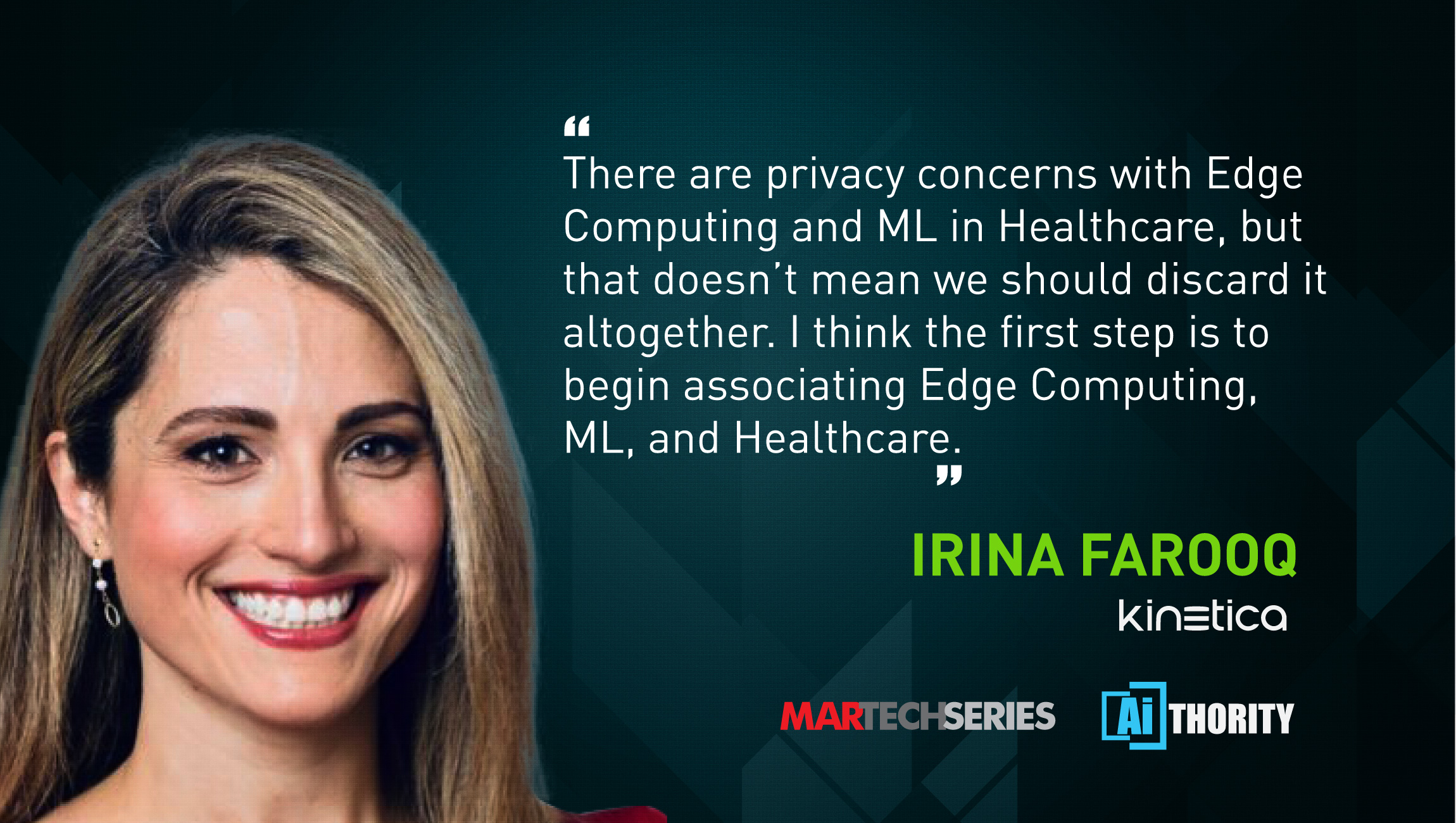
As part of our Predictions Series, Saif Ahmed of Kinetica DB shared his insights on future developments in the tech, governance, and data.
As the decade comes to a close, we can’t help but think what new wave of innovation will thrive– or fail– in 2020 and beyond. Will AI ultimately take over human-centered jobs and replace us with robots? Will we see the emergence of smart cities alongside autonomous cars? Only time can tell. However, we can all witness a certain shift in businesses toward the ethical use of AI, data privacy and governance. With California Consumer Privacy Act (CCPA) coming into force by January 1, 2020, would AI and ML Projects live up to the futuristic ambitions of various industry giants? Let’s find out.
As a part of our Predictions Series 2020, Irina Farooq, Chief Product Officer at Kinetica DB shared her insights around what’s to come in 2020, and the next decade in the tech, governance and data industry. Here are Irina’s thoughts…
What unique challenges would AI and ML Development teams face in the next few years or so?
Documentation and transparency will get top priority in 2020, as we take a step back to make sure our results follow a consistent governance framework.
In the early days of practical AI and ML, organizations were focused on getting results. Today, we’ve reached a point where the way companies are getting these results is now under scrutiny, even in the form of depositions, subpoenas, and other legal challenges. For a long time, the focus was on accuracy and performance. But this year we’re starting to see companies focus on things such as regulation, auditability, fairness, etc. I predict 2020 will be the year of governance because we can’t afford for it not to be.
Marketing Technology News: Nimble Named Top 3 Most Popular Small Business CRM in Capterra’s Top 20 CRM Roundup
What do you think about taking BI Research to the real world for a better AI/ML Implementation?
It’s difficult to put numbers on these things, but historically, corporate use of Machine Learning has faced three main challenges: finding the right people with the right skills; funding and housing the necessary compute power; and, then getting the necessary data to use ML effectively. Today, these challenges have largely been addressed. First, there are so many ways to learn the skills needed to work with AI and ML that it’s hardly a specialty at most companies.
Today, data is being recognized across industries as a crucial business asset. There are entire startup ecosystems built around data (data cleaning, data capture, data-cleaning-as-a-service); it’s not an obscure resource anymore. Data today is the most valuable business asset because everything runs on data. From the smartphone in your pocket to the retailer you bought it from, the fourth Industrial Revolution is being built by organizations that recognize the versatility of data to not only provide historical insights but also inform business decisions in real-time.
Marketing Technology News: BeeSeen Solutions Announces Partnership with AACANet
Which industries are making the biggest commercial impact with the new-gen AI and ML applications?
I believe in the idea of “Start Small, Think Big.”
The ones who will do ML well are going to be the ones who start focused.
Google and the other big tech companies may still have access to the most cutting edge data researchers, but for the rest of us, it’s not an impossible task to find employees with the skills in the right wheelhouse. Secondly, every year the amount of computing power you get for the same dollar goes up, while the amount you need for a successful ML project goes down. This means funding and housing the necessary computing power is much more feasible.
Most organizations have thousands of use cases where ML could be applied. By picking specific issues like the optimal number of shipments or pricing, you can see more significant results. You can’t expect to take on big, ambitious projects from the start and win the game. Smart adopters will tackle the low hanging fruit and work their way up. And some of these smaller, easier projects can come with big dollar signs that make it clear whether or not your model is working. If you can measure your work, you can sustain your project.
And, what about the projects related to Edge Computing? How do you see the use of Data Science further proliferating into ML projects, especially in the Healthcare sector?
Healthcare combined with Edge Computing hasn’t gotten as far as I thought it would, which is disappointing because of the enormous potential for both. For example, there was a story about a biker who fell and became unconscious. He was wearing an Apple Watch and the watch couldn’t confirm the biker was conscious so it dialed 911. There was another incident where an Apple Watch dialed family members after a user fell down and lost consciousness in their home.
This is all Edge Computing.
Machine Learning could likewise be a great benefit to Healthcare because of measurable success metrics such as cost, time-to-market, and diagnoses. There are privacy concerns with Edge Computing and ML in Healthcare, but that doesn’t mean we should discard it altogether. I think the first step is to begin associating Edge Computing, ML, and Healthcare. It just takes one significant example to shift the paradigm. And once we shift the mentality around the effect of this tech in Healthcare, I expect we’ll start to see more advancements in the industry.
One particular technology or emerging product base that you’re keenly following…
It has top be 5G and its applications in the IoT businesses.
The decade starting with 2020 seems like the combination of 5G-IoT devices will roll out on a larger scale. It would be smart to implement Machine Learning across telecom as we roll out 5G. For example, an ML model can show how you might save on infrastructure. That model then becomes a repeatable budget item, something you can invest in year after year. With the rollout of 5G and the clear metrics for success, a telecom team can easily see the effectiveness of an ML project.
Marketing Technology News: memBrain Appointed As Digital Brand Licensing Partner For Church & Dwight











